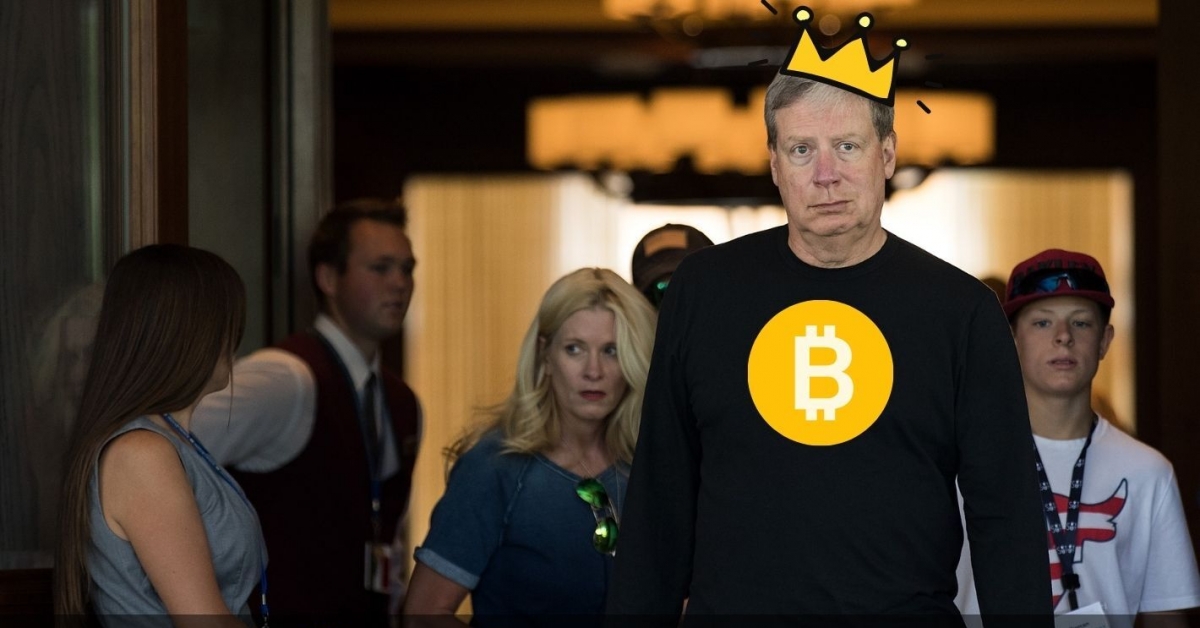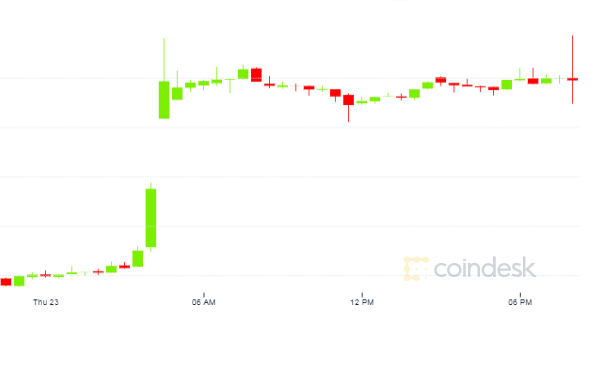Former CFTC Chairman: Regulator’s Lawsuit Against Binance ‘Is a Big Deal’
Join the most important conversation in crypto and Web3 taking place in Austin, Texas, April 26-28.
:format(jpg)/s3.amazonaws.com/arc-authors/coindesk/babbc463-ff00-4c88-bbf6-967e974c517e.jpg)
Fran is CoinDesk’s TV writer and reporter.
Join the most important conversation in crypto and Web3 taking place in Austin, Texas, April 26-28.
The Commodity Futures Trading Commission (CFTC) lawsuit against Binance, the largest crypto exchange by trading volume, is, in Timothy Massad’s words, a “big deal.”
“If you read the complaint, there is so much detail to it. It suggests that [CFTC] did have some information from people inside,” said the regulator’s former chairman, now a research fellow at Harvard University’s John F. Kennedy School of Government. He told CoinDesk TV’s “First Mover” on Tuesday the level of detail is “really quite striking.”
The CFTC, which is responsible for regulating the U.S. derivatives markets, filed a lawsuit Monday against Binance and its founder, CEO Changpeng Zhao, for allegedly offering unregistered derivatives products and helping U.S.-based customers sidestep compliance controls via the use of virtual private networks (VPN).
“This complaint basically says that Binance and Zhao himself deliberately and systematically cultivated U.S. business, helped U.S. persons get around those restrictions and even did things internally to try to hide how much U.S. business they were doing,” said Massad, also director of the Digital Assets Policy Project.
In a blog post response, Zhao said the complaint “appears to contain an incomplete recitation of fact,” adding that the exchange does not agree ”with the characterization of many of the issues alleged in the complaint.”
Will the CFTC’s lawsuit against Binance finally prompt congressional lawmakers to enact legislation for regulating the crypto industry in the U.S.? Massad said it is unlikely.
“I don’t see the movement toward a consensus on that in Congress,” said Massad, who led the CFTC for nearly three years during the Obama administration.
“I think there’s really quite a variety of views from those who are very skeptical about crypto and don’t want to pass a law that they feel would legitimize it too much, and those who … believe in the innovative potential and would like to see greater regulatory clarity and perhaps rules that allow for more innovation,” he said.
Meanwhile, the agency’s filing against Binance will take some time to litigate, he said. At least for the moment, “we’ll just have to watch these enforcement actions play out.”
Edited by Ben Schiller.
DISCLOSURE
Please note that our
privacy policy,
terms of use,
cookies,
and
do not sell my personal information
has been updated
.
The leader in news and information on cryptocurrency, digital assets and the future of money, CoinDesk is a media outlet that strives for the highest journalistic standards and abides by a
strict set of editorial policies.
CoinDesk is an independent operating subsidiary of
Digital Currency Group,
which invests in
cryptocurrencies
and blockchain
startups.
As part of their compensation, certain CoinDesk employees, including editorial employees, may receive exposure to DCG equity in the form of
stock appreciation rights,
which vest over a multi-year period. CoinDesk journalists are not allowed to purchase stock outright in DCG
.
:format(jpg)/s3.amazonaws.com/arc-authors/coindesk/babbc463-ff00-4c88-bbf6-967e974c517e.jpg)
Fran is CoinDesk’s TV writer and reporter.
Learn more about Consensus 2023, CoinDesk’s longest-running and most influential event that brings together all sides of crypto, blockchain and Web3. Head to consensus.coindesk.com to register and buy your pass now.
:format(jpg)/s3.amazonaws.com/arc-authors/coindesk/babbc463-ff00-4c88-bbf6-967e974c517e.jpg)
Fran is CoinDesk’s TV writer and reporter.









